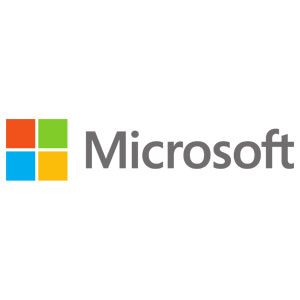-
 $4,100.00Select options
$4,100.00Select optionsAbout this course
This course provides students with the fundamental knowledge and skills to use PowerShell for administering and automating administration of Windows servers. This course provides students the skills to identify and build the command they require to perform a specific task. In addition, students learn how to build scripts to accomplish advanced tasks such as automating repetitive tasks and generating reports. This course provides prerequisite skills supporting a broad range of Microsoft products, including Windows Server, Windows Client, Microsoft Azure, and Microsoft 365. In keeping with that goal, this course will not focus on any one of those products, although Windows Server, which is the common platform for all of those products, will serve as the example for the techniques this course teaches.
-
 $820.00Select options
$820.00Select optionsAbout this course
Introduced in 2006, Windows PowerShell is a scripting language, a command-line shell, and a scripting platform built on Microsoft .NET Framework. Despite the scripting designation, Windows PowerShell features a range of characteristics common for programming languages, including its object-oriented nature, extensibility, C#-like syntax, and the ability to interact directly with .NET classes, their properties, and methods.
The primary objective of Windows PowerShell was to help IT professionals and power users control and automate the administration of the Windows operating system and applications that run on Windows.
To take advantage of the benefits that Windows PowerShell has to offer, while at the same time, minimize security-related risks, it is essential to understand the primary aspects of Windows PowerShell operational security. Another aspect that is critical to consider in the context of this course is the role of Windows PowerShell in security exploits.
This 1-day Instructor-led security workshop provides discussion and practical hands-on training for PowerShell. you will learn about PowerShell fundamentals, including its architectural design, its editions and versions, and basics of interacting with PowerShell
You will then explore the most common Windows PowerShell-based techniques employed by hackers in order to leverage existing access to a Windows operating system to facilitate installation of malicious software, carry out reconnaissance tasks, establish its persistency on the target computer, and promote lateral movement. You will also review some of Windows PowerShell-based security tools that facilitate penetration testing, forensics, and reverse engineering of Windows PowerShell exploits. To conclude the course, you will provide a summary of technologies recommended by the Blue Team that are geared towards implementing comprehensive, defense-in-depth security against Windows PowerShell-based attacks.
This workshop is part of a larger series of Workshops offered by Microsoft on the practice of Security. While it is not required that you have completed any of the other courses in the Security Workshop series before taking this workshop, it is highly recommended that you start with the first course in the series, Microsoft Security Workshop: Enterprise Security Fundamentals.
- 40551A: Microsoft Security Workshop: Enterprise Security Fundamentals
- 40552A: Microsoft Security Workshop: Managing Identity
- 40553A: Microsoft Security Workshop: Planning for a Secure Enterprise – Improving Detection
- 40554A: Microsoft Security Workshop: Implementing Windows 10 Security Features
- 40555A: Microsoft Security Workshop: Implementing PowerShell Security Best Practices.
-
 $2,460.00Select options
$2,460.00Select optionsAbout this course
55318A is the updated version of the retired legacy MOC course 10962C. This three-day course teaches students how to automate administrative tasks using PowerShell. Students will learn crucial scripting skills such as creating advanced functions, writing controller scripts, and handling script errors. Candidates will learn how to use PowerShell when working with Microsoft Azure, SQL Server, Active Directory, IIS, Windows PowerShell Workflow, .NET resources, the REST API and XML, CSV & JSON formatted data files.
Hello!
We are happy to see you again!
Login to your account
[wordpress_social_login]
Register to start learning
[wordpress_social_login]
My Cart 0
